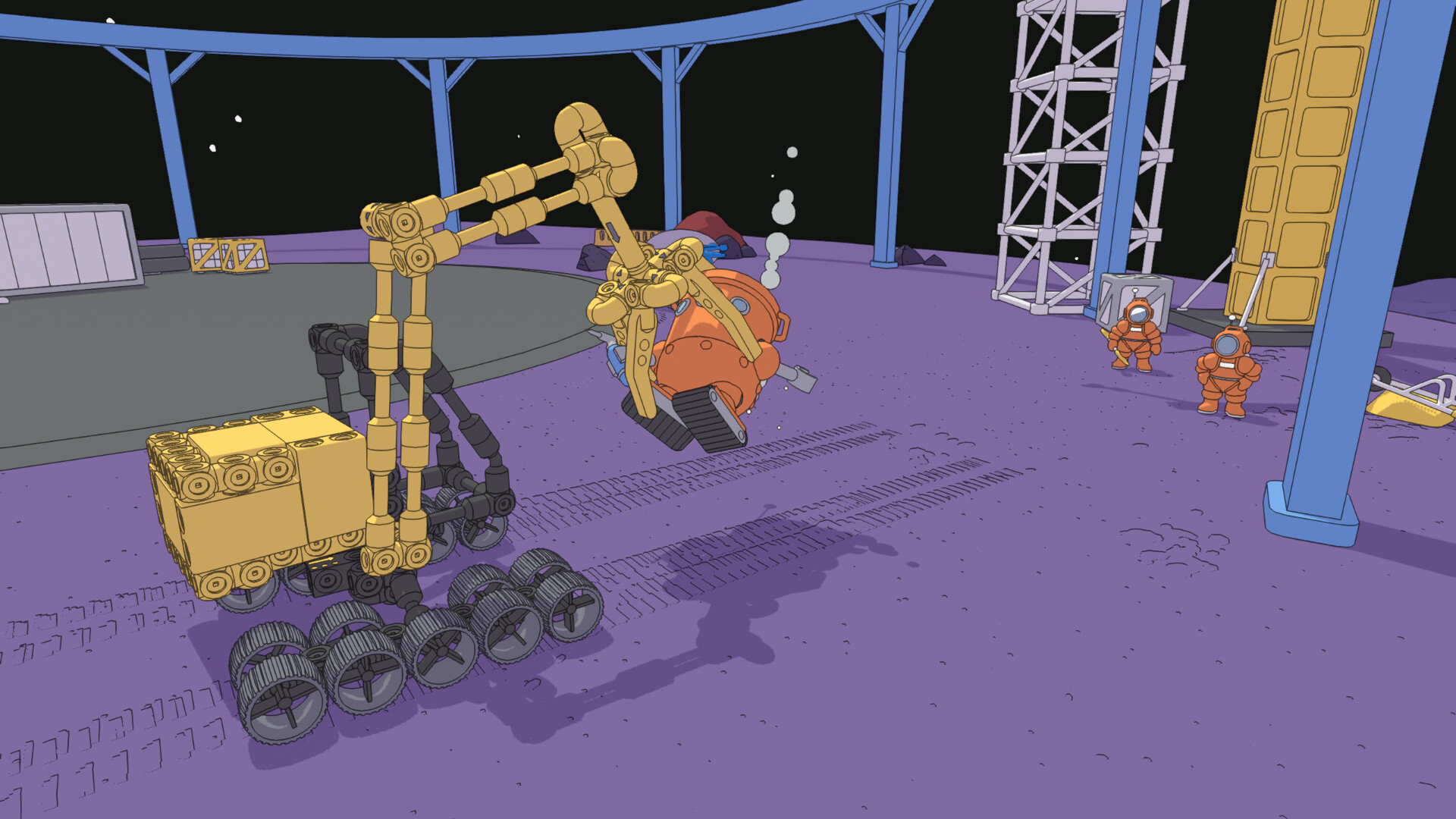I built some wonky robots in Mars First Logistics, and they keep spilling potatoes
An open-world physics sim with snap-together parts and hysterical failures.

Have you ever wanted to be a logistics and delivery drone driver and engineer on the surface of Mars? If so then honestly, wow, that's a very specific wish, but congratulations: Mars First Logistics is here to fulfill that desire. The new open-world physics game has you design and pilot robots to transport a variety of both practical and whimsical cargo across the rolling dunes and rugged stones of the barren red world.
What's most fun about it is that you build up infrastructure doing very serious hauling jobs: Steel girders and a reflective mirror for a new telescope, which then becomes a location you visit and take jobs from. Those jobs are balanced with slightly sillier tasks, like a crate of potatoes that needs moving from point A to B. Or worse, just... three potatoes. No crate. Just sitting on the ground. One of which your custom-built and delicately balanced potato-lifting bot will, invariably, drop into a deep chasm.
Each fulfilled contract lets you purchase new parts to build rovers out of, and from simple machines with a single grabbing claw you quickly advance to building multifunction mechanical monsters that lift, articulate, and position deliveries in very specific ways.
After a few hours with the game, I'm pretty much ready to agree with the Steam reviews, which are 98% positive as of this article. The 2% negative is for when I cannot for the life of me build a rover that can carry an umbrella without falling over. Snapping the rover parts together is easy, as they fit into a grid-like pattern, but designing the perfect rover is not.
Aside from being fun, Mars First Logistics has a distinct visual style. It has the kind of pastel palette that we saw recently in Sable, but with a much thicker lines, giving the models and environments more toy-like appearance. The soundtrack and sound design generally have a very relaxed, ambient feeling that complements the open world play.
The open world element doesn't feel tacked on. Exploring the surface of Mars is done by reaching new radio towers to add to your network. As you complete contracts new side and main jobs show up among both clients you know about—on the map already—and ones you've never visited. You can jump between stations you've already visited any time, letting you focus on deliveries and exploration, not repetitive slogs across well-worn terrain.
You can find Mars First Logistics on Steam for $20. Developer Shape Shop, based in Australia, intends to add Steam Workshop support in the future.
Keep up to date with the most important stories and the best deals, as picked by the PC Gamer team.
Jon Bolding is a games writer and critic with an extensive background in strategy games. When he's not on his PC, he can be found playing every tabletop game under the sun.

